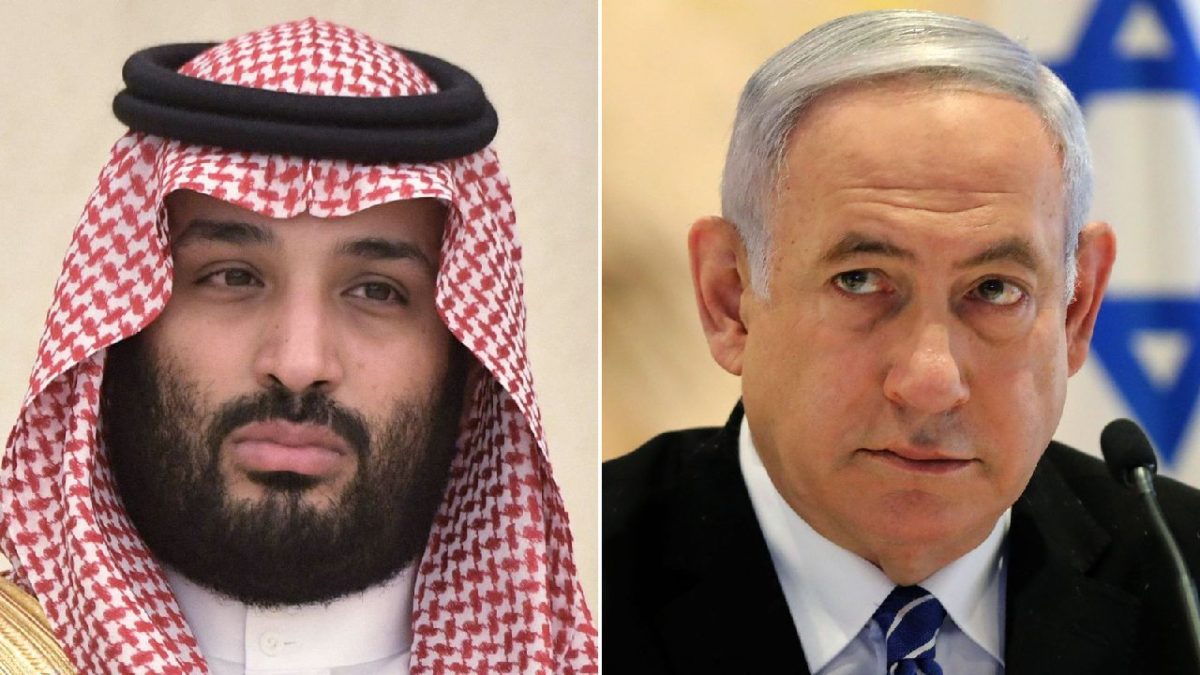United States officials have sought for months to reach what would be a historic agreement that Netanyahu has said would be a huge step towards ending the Israel-Palestine conflict, but Riyadh has signalled a deal would rest on Palestinian statehood.
“I can identify with what the United States president said in an interview a few days ago, where he said that the road is still long but that he thinks there will be a possibility of progress,” Hanegbi told public broadcaster Kan on Monday, adding that Israel is not involved in the US-Saudi discussions.
“I can say that Israel will not give in to anything that will erode its security,” he stated.
Antony Blinken, the US secretary of state, visited Saudi Arabia in June with the explicit objective of promoting normalisation after declaring it a “national security interest” of the US.
US President Joe Biden last week dispatched his national security adviser to Riyadh to discuss a possible deal and on Friday said a rapprochement was “maybe under way”.
Asked whether the question of eroding Israel’s “security” included Riyadh establishing a civilian nuclear programme on its soil, Hanegbi stated that for that, Israel’s consent was not needed.
“Dozens of countries operate projects with civilian nuclear cores, and with nuclear endeavours for energy, this is not something that endangers them nor their neighbours,” he added.
US-Israeli ties have been strained in recent months by the Israeli government’s expansion of illegal Jewish settlements in the occupied West Bank and highly contested judicial changes pursued by Netanyahu’s nationalist-religious coalition.
Last year was the deadliest for Palestinians in the West Bank since the United Nations began keeping track of fatalities in 2005 with 150 people killed, including 33 minors. Officials have warned that 2023 will likely have a higher number of fatalities.
The idea of Israel and Saudi Arabia formally cementing ties has been under discussion since the Persian Gulf countries of the United Arab Emirates and Bahrain established ties with Israel in 2020.
But on Monday, a member of a key party in Netanyahu’s government rejected any concessions towards the Palestinians as part of a pact.
“We certainly won’t agree to such a thing,” National Missions Minister Orit Strock told Kan.
“We are done with withdrawals. We are done with freezing settlements in Judea and Samaria,” Strock said, referring to the occupied West Bank.
Though it was unclear whether Strock was speaking on behalf of her entire party, such a position would pose a political obstacle for Netanyahu, who has cast the normalisation of ties with Saudi Arabia as a major foreign policy goal.
Her remarks were echoed by the head of another member of the coalition government, National Security Minister Itamar Ben-Gvir, who heads the far-right Jewish Power party. He told Army Radio that he has nothing against diplomatic deals with Arab countries.
“But if this deal includes concessions to the [Palestinian] Authority, handing over territory, arming the authority or giving … terrorists power, then I surely object,” he added.
